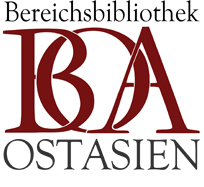Debates on the Nanfang Zhoumo Incident of January 2013
edited by participants of the course "China Digital", organised by Lorenz Bichler in 2012/2013 at the Institute of Chinese Studies, University of Heidelberg, in cooparation with the DACHS team
Table of Content
Introduction
by Lorenz Bichler
Background
The historical backdrop to the Nanfang Zhoumo (南方周末 Southern Weekend) incident are two radically different understandings of what a constitution is. While the Communist Party, since the 1920s saw constitutionalism as an obstacle to the restoration of a strong state and therefore first advocated and later erected a strictly Leninist Party-State, many reform-oriented intellectuals saw constitutionalism as a useful means of controlling the heavy-handed interference of this Party-State into the lives of their citizens. A painful paradox arose out of the fact that even the Party-State gave itself a constitution, granting, on paper, such basic rights as freedom of expression. The rights were written down but never really implemented. The gap between the rights in the constitution and their non-implementation was the wound into which the editors of the New Year greeting (新年献词) put their finger.
Dai Zhiyong (戴志勇), the author of the editorial, cleverly juxtaposed the times of the Cultural Revolution, where, in his words, there was a total lack of constitutionalism, with the current times, in which the economy is thriving and people are waiting to see their dream of a Chinese state that finally honours its constitution come true.
The incident also put to a test the new leadership of the Communist Party, installed only a month ago. Many observers interpreted the incident as a clear sign that the new leadership under Xi Jinping (习近平) would not favour more freedom of the press and other civil rights.
The Incident
Dai Zhiyong, an editor at the reformist newspaper Nanfang zhoumo had written the paper’s traditional New Year editorial entitled “China’s Dream: The Dream of Constitutional Government” (中国梦,宪政梦!).
But due to heavy interference by the provincial propaganda department, the editorial was not published the way Dai had written it, but it’s content was watered down to propagate something along the lines of Xi Jinping’s “China’s dream” (中国梦), which he mentioned in a speech in early December 2012, saying China has never been closer to its dreams thanks to the wise guidance of the Communist Party. Xi had recently been promoted as Chairman of the Communist Party, and many observers expected him to stand in for more reforms and a more open government.
It is not clear by who and how the undoubtedly heavy handed interference into Dai’s text was engineered, but it became clear early on that Tuo Zhen (庹震), a newly appointed head of the provincial propaganda department in Guangdong, would ultimately be held responsible.
The matter was further complicated by complaints by journalists at the Southern Weekend who claimed that propaganda officials had gained access to the code to the paper’s official micro-blog (weibo 微薄) and started to post according to the propaganda department’s lines, contradicting the journalists and editors at the paper.
The Aftermath
Beginning during the first week of January, 2013, a host of reactions started to flood the internet. Open letters, first by former journalists of Nanfang Zhoumo demanded to bring “cultural fascism” (文化法西斯) to trial, then famous actresses and actors started to defend the editorial stance of the paper.
Later in the week after the incident, there was the threat of a strike of the papers journalists and even street protests in front of the office building of the newspaper.
After about ten days of protests and many open letters, the incident ended in a seemingly uneventful compromise, the outlines of which never really became clear.
Already on January 11, 2013, a podcast was published on Sinica, bringing together Jeremy Goldkorn and Ian Johnson, the former Bureau chief for the New York Times to discuss the topic in an interesting and stimulating way.


 DACHS Leiden
DACHS Leiden
